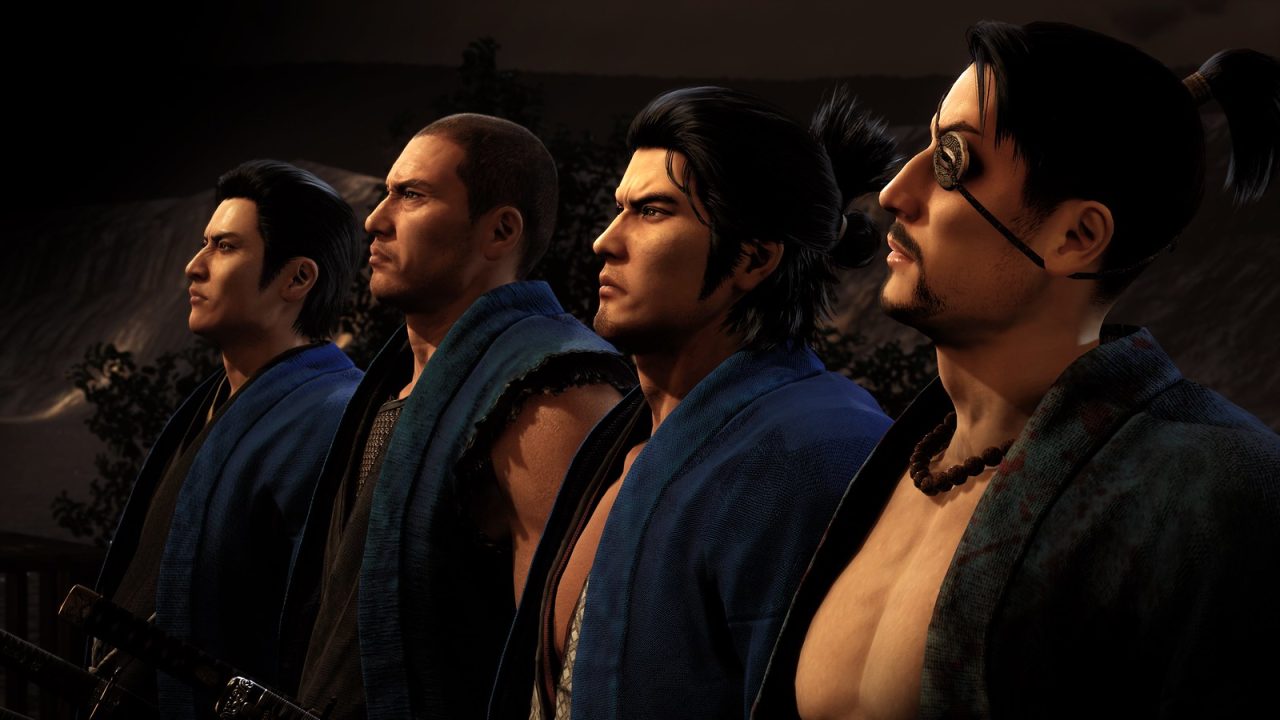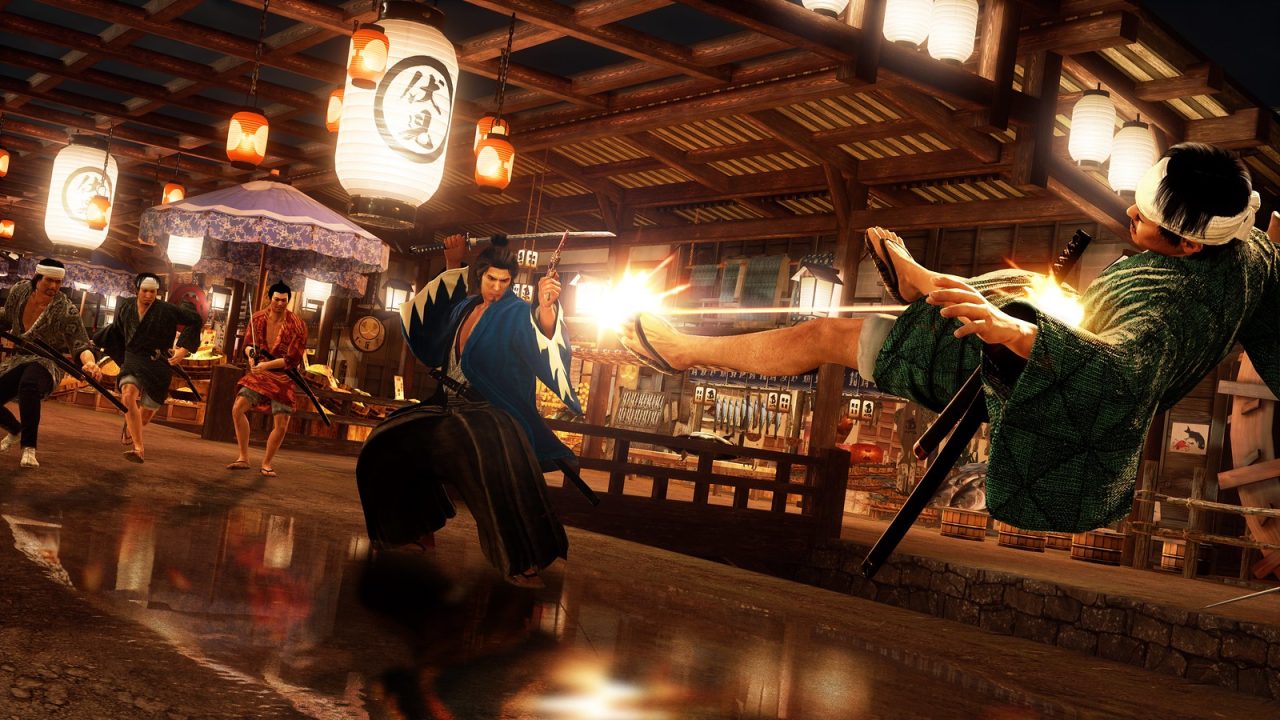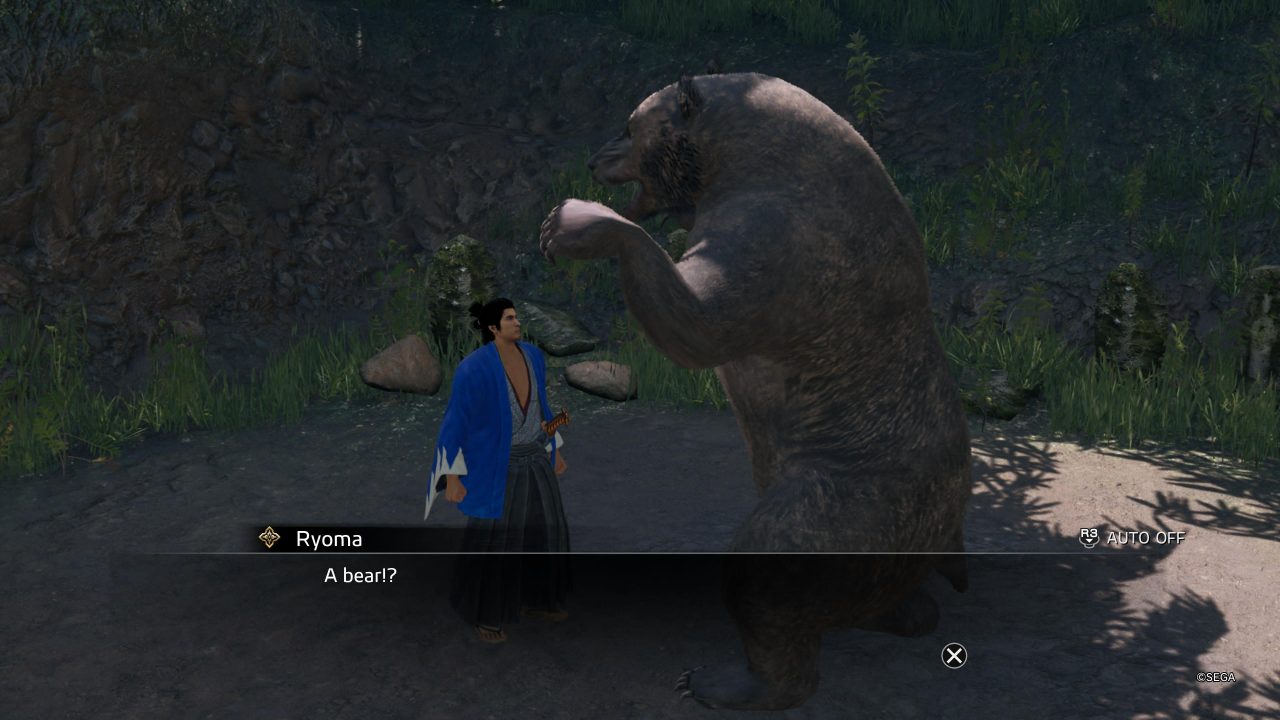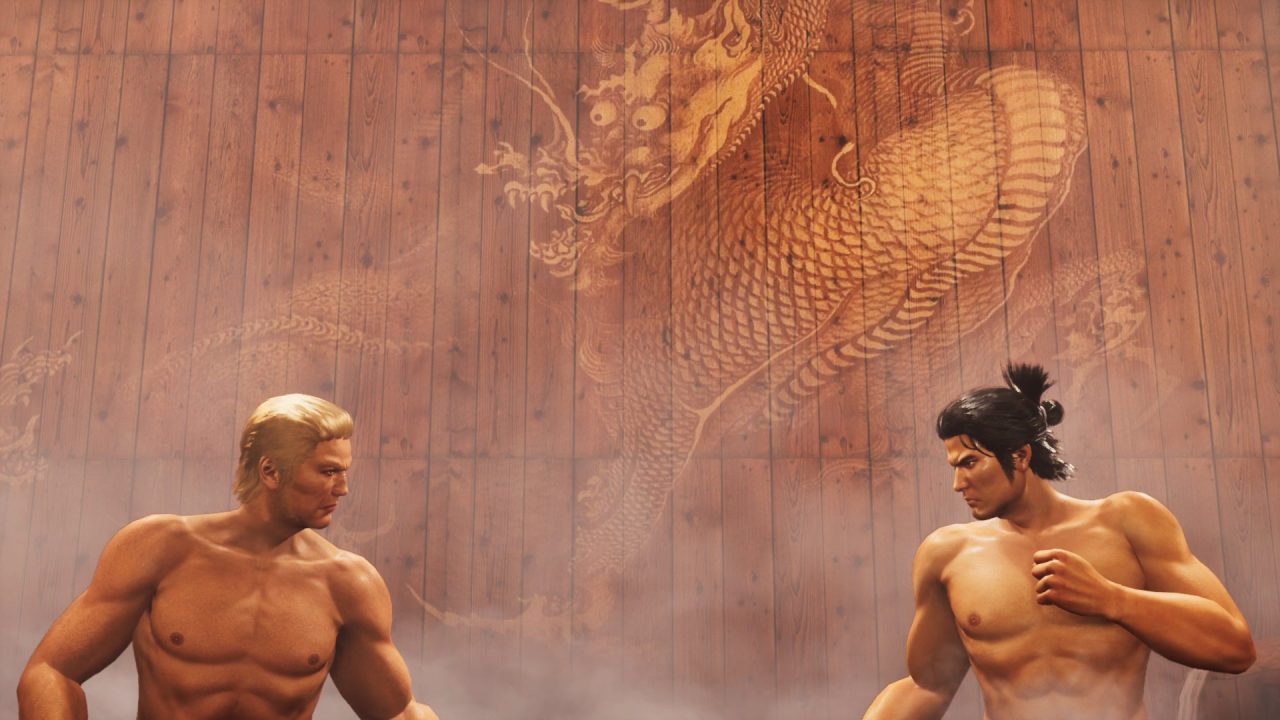If you want to win an Oscar, it’s always a good bet to produce a big, flashy historical epic! Casting some beloved big-name actors in a costume-piece extravaganza is like catnip to the academy and is often a guaranteed audience pleaser at the box office.
One can’t help but wonder whether the team at Ryu Ga Gotoku Studio was inspired by this philosophy when they came up with the idea of setting an entry of their epic modern crime-drama series, Yakuza, in ancient Japan. Suddenly, yakuza clans became samurai clans, modern codes of honor were replaced with ancient codes of honor, and fists were supplanted by swords. And rather than come up with an entirely new cast for this departure of setting, RGG Studio had an inspired idea: What if they “cast” the characters in their historical epic as the already established characters in the Yakuza series? The result was two epic games, Ryū ga Gotoku Kenzan! and Ryū ga Gotoku Ishin! But unfortunately, RGG Studio judged that two games about samurai-era Japan held no western appeal, so they remained unreleased. That is, unreleased until the Yakuza series finally broke out of its cult status and became a mainstream hit! Finally, after a decade, we are getting a modern remake of 2013’s Like a Dragon: Ishin! And believe me: it was worth the wait.
The shogunate is in crisis! Following the end of Japan’s isolationist policies in the late 19th century, Sakamoto Ryoma and his mentor Toshiba Toyo fight to reform Japan’s rigid class system and restore the Emperor to power. But after Ryoma is framed for Toyo’s murder, he is forced to go into hiding, adopting the new identity of Saitō Hajime to undercover the real killer. Finding himself surrounded by potential enemies in the city of Kyo, Ryoma must uncover the truth to clear his name, bring equality to the people, and change the future of Japan forever!
Ishin is a wonderful entry point for newcomers to the series. With no long-established canon weighing it down, Ishin lets players simply enjoy the gameplay, minigames, and story without having to worry about events that happened two or three games before. But don’t make the mistake that this experience is anything but pure Yakuza/Like a Dragon. Everything long-time fans love about the series is still here, just reinterpreted to fit its new setting. The karaoke parlor becomes a singing hall, baseball becomes cannonball/katana training, and mahjong becomes, well… mahjong. Ishin is also jam-packed with Easter eggs designed to make previous players roar with delight. If you are someone who has been following the series for years, you’re in for countless treats that will likely go over the heads of more casual players.
But what is a Yakuza game without its iconic characters? RGG Studio used the models and voice actors of their beloved characters to populate the cast of Ishin, and kept their unique personalities and quirks intact. “Kiryu” as Ryoma is still a granite-faced paragon of virtue surrounded by corruption at every turn. “Majima” as Soji is still a vicious mad dog with a sharp blade, always spoiling for a fight. And “Haruka” as, uh, Haruka is still a beacon of innocence that pushes Kiryu/Ryoma forward in his quest. However, just because everyone here is playing to type doesn’t necessarily mean they are in the roles you would expect. Allies become enemies, enemies become friends, and relationships long established in the canon entries of the series are often turned on their heads. What I love about this is that, for the first time in years, you don’t know who you can trust or not. The story, though labyrinthine in its complexity as always, is much less predictable when you can’t gauge the characters the way you can in the main series.

That said, there is a point where this story can get too confusing for its own good. Following the dual identities of its protagonist, Sakamoto Ryoma/Saitō Hajime, isn’t too bad. But when multiple other characters start showing up with various identities, it becomes a bit difficult to keep things straight. I’m not saying you’ll need a flowchart, but you may need to make a few notes as you play!
Although Ishin is being advertised as a remake somewhat along the lines of Yakuza Kiwami, this is closer to an enhanced remaster. To my eyes, it looks like the vast majority of textures and models were directly imported from the original Ryū ga Gotoku Ishin into the Unreal 4 Engine, including the facial models of many of the characters. Though these characters look fine in isolation, the stiffness of their expressions makes it obvious that this game was built in 2014, not 2023. However, that’s not the case with every character. To make the game more relevant to newer fans, RGG Studio has replaced some character models from older Yakuza titles with newer ones, ranging from Yakuza 0 models onwards to ones from Yakuza: Like a Dragon. This change creates a bizarre juxtaposition, with character models looking like they are from two different console generations. Add to this the new and incredibly bright lighting system that occasionally washes out all facial details (especially for female characters), and you are left with a game that occasionally looks modern, occasionally looks retro, and occasionally looks terrible.
Speaking of arguably the most beloved entry of the series, Ishin really did come across to me as a prototype for Yakuza 0, especially in the excellent brawler-based combat. Though Ryoma’s combat styles differ from Kiryu’s, there are still four of them you can switch between on the fly in every fight. You have the option to fight barehanded, with your katana, with a revolver, or with your katana and revolver at the same time in a wild dance of death. Each style offers its own strengths, and learning how the various styles synergize with each other is a joy. For example, you can lower enemies’ health at a distance with your gun, switch to Wild Dancer to windmill your way through the mob, soften up individual enemies with your katana, and then absolutely crush them barehanded with a few well-timed Tiger Drops. My only complaint is that, when properly leveled up and equipped, your gun style can completely break the combat. By the end of the game, I was literally able to rapidly take out hundreds of enemies simply by wailing on them from a distance with my firearm. Machine Gun Kiss, indeed!

Nothing beats a Yakuza game when it comes to gameplay value for your money. Though the main story will take you thirty or so hours, the side content will consume more time. Sure, you COULD simply follow the critical path… but why bother when you can instead spend your time betting on chicken races, gambling at the casino, or learning traditional Japanese fan dancing? And let’s not forget the dozens upon dozens of substories that litter the infinitely fascinating city of Kyo, ranging from absurd to absolutely heartbreaking. You can also strike up friendships with various characters across the city. Sometimes, building up their friendship meter simply involves buying things from them. Other times, the process might be a little more involved. The more friends you make, the more your reputation improves across the various neighborhoods, changing how NPCs react to you as you race across the map.

Outside of the main story and substories, there are several different gameplay modes on offer here, including a massive piece of side content called “Another Life.” In it, you become the guardian of an innocent orphan named Haruka (history not only repeats, it rhymes), and you must pay off her 100 ryo debt to save her house. You do so by farming, cooking, fishing, and peddling your wares as a merchant to earn money while building up your relationship with her. There are times when this mode can feel a little repetitive, but that’s the beauty of Yakuza gameplay: when you get bored with one activity, there are a dozen other ones you can do instead, such as grinding through the battle dungeons, manning an udon noodle stand, fighting in the arena, and much, much more.
The Yakuza series has always excelled in the sound department, and Ishin carries on this tradition. The voice acting (which is only in Japanese) is exceptional. All the old favorite actors are in top form, and it’s wonderful to hear some long-absent voices return and stretch their acting muscles in their new/old roles. The music here is also fantastic. Featuring a mix of modern tunes combined with more traditional Japanese fare, Ishin creates an atmosphere that feels like Yakuza while fitting right in with 19th-century Japan. It was also a thrill to hear some old favorite tunes, including Baka Mitai (I’ve Been a Fool) and Machine Gun Kiss, get period-appropriate remixes!

Playing Like a Dragon: Ishin! took me back to the feeling I had when I first played Yakuza 0, which is not a bad thing! Though it isn’t the pinnacle of the series, Ishin delivers a pure Yakuza experience that will delight both long-time and new fans. It’s an expertly told melodrama punctuated with moments of genuinely breathtaking absurdity. In other words, it’s a Yakuza game. And frankly, if this actually were a historical drama in the running for Best Picture at the Oscars, it would absolutely get my vote!


